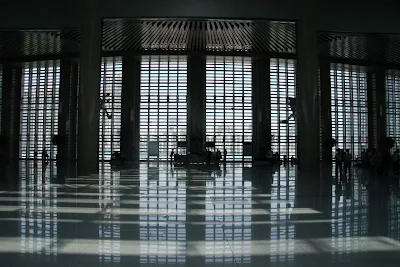This is real propaganda (or messaging) from the ministry of information in 1939. George Orwell would have seen this no doubt.
I'm surprised so few advertising people are acknowledging that we're in truly remarkable times. It's been a year of credit crunch with Bear Stearns on 'emergency loans', Merrill Lynch sold to the Bank of America (convenient) Freddie Mac and Fannie Mae nationalised, that's proper nationalised like my heroes Ernest Bevan, Clement Atlee and Tony Benn would have done long before there was any trouble, Lehman brothers down and AIG about to bite the carpet. There's more to come as well.
I've been rereading my Nassim Nicolas Taleb (Fooled by Randomness, not The Back Swan) and although I can see like Johnnie Moore suggested to me that he's a bit full of himself, he has taught/reminded me that we know so little (the past is relatively short) that we've no idea about the future and so I'm not going to make any predictions except some light water colouring.
We're in for a change, I think monetarism might get a good spanking and selling stuff will still be vital but what is sold and how it is sold will change. (although more slowly) I don't think economic growth is the metric by which we can always measure a country's success. Just one example is that they shut the factories down in China for the Olympics and we had the cleanest air in Beijing for a few weeks.
We're in for a change, I think monetarism might get a good spanking and selling stuff will still be vital but what is sold and how it is sold will change. (although more slowly) I don't think economic growth is the metric by which we can always measure a country's success. Just one example is that they shut the factories down in China for the Olympics and we had the cleanest air in Beijing for a few weeks.
I'm pretty sure someone somewhere in the oxyacetalyne growth obsessed Chinese Politburo must have said 'hang on what's it all for if we have a better quality of life by doing less'? Well greed is intoxicating isn't it so maybe not, and let's not point the finger because we thought we won something when Communism was beaten by the West. What we lost was the chance to grow slower-quicker but that's another post I guess. I absolutely love thinking and talking about those 'what if's'. One thing is for sure I'm sick to death of the word growth being used as if it's a sign of success. It's a sign of intellectual decay. We absolutely need to go slower in life. A rich man is one who goes slowly and takes their time. You can't buy time, you can only spend it so the wealth aquired usually means expending effort so hard that your life slips by before you can really start to enjoy it. I'll say it again. Rich people go slowly.
So that's enough from me for the time being. I sympathise if you're heavily exposed in mortgage on property that will be in negative equity but there's nothing for it but to adapt lifestyle and sit it out till money starts moving around again. Hopefully in a more intelligent way than the neoliberal economics that played on peoples greed and extended many of us way beyond our capacity to operate in harmony with the planet.
Anyone disagree?
Update Lehman just got propped up for 85 Billion Dollars by the Federal Reserve. Partially renationalised.
Update Lehman just got propped up for 85 Billion Dollars by the Federal Reserve. Partially renationalised.















